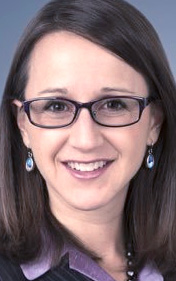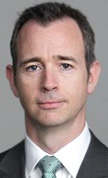

 A stack contrast is emerging within the DNS between providers who tolerate blatantly illegal domain use and those who do not. Our study, just published here focuses on five U.S.-based providers, their policies, and their response to reports of opioid traffic within their registry or registrar. There are many providers, not covered here, who removed hundreds of domains selling opioids and I applaud their efforts. more
A stack contrast is emerging within the DNS between providers who tolerate blatantly illegal domain use and those who do not. Our study, just published here focuses on five U.S.-based providers, their policies, and their response to reports of opioid traffic within their registry or registrar. There are many providers, not covered here, who removed hundreds of domains selling opioids and I applaud their efforts. more
 Nomulus is the code for the backend domain name registry solution offered by Google which requires the use of Google Cloud. This solution is the one used for all of Google's new gTLDs and the solution works. An announcement for this solution can look like a potentially "simple" solution for future .BRAND new gTLD applicants, but is it truly the case? more
Nomulus is the code for the backend domain name registry solution offered by Google which requires the use of Google Cloud. This solution is the one used for all of Google's new gTLDs and the solution works. An announcement for this solution can look like a potentially "simple" solution for future .BRAND new gTLD applicants, but is it truly the case? more
 Google has recently announced the release of Nomulus, its free, open source registry software, triggering discussion of its impact on the industry. Afilias has over 15 years of experience in registry operations, and offers the following initial thoughts... First, free registry software is not new.CoCCA has offered this option for years, and TLDs such as .CX (Christmas Island) and .KI (Kiribati) use it. It is supported on a "best efforts" basis and appears to meet the limited needs of a few small operators. more
Google has recently announced the release of Nomulus, its free, open source registry software, triggering discussion of its impact on the industry. Afilias has over 15 years of experience in registry operations, and offers the following initial thoughts... First, free registry software is not new.CoCCA has offered this option for years, and TLDs such as .CX (Christmas Island) and .KI (Kiribati) use it. It is supported on a "best efforts" basis and appears to meet the limited needs of a few small operators. more
 Of all the patently false and ridiculous articles written this month about the obscure IANA transition which has become an issue of leverage in the partisan debate over funding the USG via a Continuing Resolution, this nonsense by Theresa Payton is the most egregiously false and outlandish. As such, it demands a critical, nearly line by line response. more
Of all the patently false and ridiculous articles written this month about the obscure IANA transition which has become an issue of leverage in the partisan debate over funding the USG via a Continuing Resolution, this nonsense by Theresa Payton is the most egregiously false and outlandish. As such, it demands a critical, nearly line by line response. more
 eco, which is the largest internet industry association in Europe, is holding a virtual meeting later this month to discuss Brexit. The meeting, which is scheduled for July 27th at 1200 UTC, will be the first of several dialogues among industry to discuss the potential impact of the UK's exit from the EU on the domain name industry. As I mentioned in a recent post, the exit of the UK from the EU has an "unknown" impact on how domain name registries and registrars will interact with UK based registrants. more
eco, which is the largest internet industry association in Europe, is holding a virtual meeting later this month to discuss Brexit. The meeting, which is scheduled for July 27th at 1200 UTC, will be the first of several dialogues among industry to discuss the potential impact of the UK's exit from the EU on the domain name industry. As I mentioned in a recent post, the exit of the UK from the EU has an "unknown" impact on how domain name registries and registrars will interact with UK based registrants. more
 Domain name registration is a hot industry. Registrars represent a growing multi-billion dollar industry with the keys to the Internet for any organization hoping to have a web presence. Further, because of their role as one of the gatekeepers to the Internet, registrars have the unique ability and are often asked to take action against illegal activity online. This fact was highlighted in the report released this week by the Office of the U.S. Trade Representative, the 2015 Out-of-Cycle Notorious Markets List. more
Domain name registration is a hot industry. Registrars represent a growing multi-billion dollar industry with the keys to the Internet for any organization hoping to have a web presence. Further, because of their role as one of the gatekeepers to the Internet, registrars have the unique ability and are often asked to take action against illegal activity online. This fact was highlighted in the report released this week by the Office of the U.S. Trade Representative, the 2015 Out-of-Cycle Notorious Markets List. more
 As I wrote in December 2015, some Internet commerce companies - including domain name registries, registrars, advertising providers, social media platforms, payment processors and shippers - are doing right by patients in taking voluntary action against illegal online drug sellers. This is no small feat as 97% of the roughly 35,000 active online drug sellers are operating illegally. more
As I wrote in December 2015, some Internet commerce companies - including domain name registries, registrars, advertising providers, social media platforms, payment processors and shippers - are doing right by patients in taking voluntary action against illegal online drug sellers. This is no small feat as 97% of the roughly 35,000 active online drug sellers are operating illegally. more
 A little over a year ago I wrote a series of articles to help guide those with a .brand TLD through the delegation process. After ICANN's recent push for .brands to delegate, the majority are now across the line. There would be many organizations out there currently feeling like first time parents who've just brought a newborn home from the hospital -- it's been a long process already, and the hard work hasn't even begun. more
A little over a year ago I wrote a series of articles to help guide those with a .brand TLD through the delegation process. After ICANN's recent push for .brands to delegate, the majority are now across the line. There would be many organizations out there currently feeling like first time parents who've just brought a newborn home from the hospital -- it's been a long process already, and the hard work hasn't even begun. more
 The merits of a Registry Service Provider accreditation programs have been debated across the Domain Industry since the most recent round of Domain Name Registries were introduced starting in 2012. This post discusses the early reasoning in support of an accreditation program; changes in the policy considerations between 2012 and now; the effects of competition on the landscape; a suggestion for how such a program might be implemented; and why such a program should be introduced now. more
The merits of a Registry Service Provider accreditation programs have been debated across the Domain Industry since the most recent round of Domain Name Registries were introduced starting in 2012. This post discusses the early reasoning in support of an accreditation program; changes in the policy considerations between 2012 and now; the effects of competition on the landscape; a suggestion for how such a program might be implemented; and why such a program should be introduced now. more
 The current policies for .eu domain name registration restrict registration to organisations, businesses and individuals that meet certain criteria. In order to get a .eu domain name you need to be resident within the EU, Norway, Iceland or Liechtenstein. This is laid out in the current policy... Post-Brexit it is unclear whether UK registrants will still qualify to hold their .eu domains. more
The current policies for .eu domain name registration restrict registration to organisations, businesses and individuals that meet certain criteria. In order to get a .eu domain name you need to be resident within the EU, Norway, Iceland or Liechtenstein. This is laid out in the current policy... Post-Brexit it is unclear whether UK registrants will still qualify to hold their .eu domains. more
 A dispute policy for the new '.bible' top-level domain name requires panelists who agree to hear cases to affirm that they "enthusiastically support the mission of American Bible Society" and that they "believe that the Bible is the Word of God which brings salvation through Christ." The DotBible Community Dispute Resolution Policy appears to be the first domain name dispute policy that requires panelists to take a religious oath - or, for that matter, an oath other than anything related to maintaining neutrality. more
A dispute policy for the new '.bible' top-level domain name requires panelists who agree to hear cases to affirm that they "enthusiastically support the mission of American Bible Society" and that they "believe that the Bible is the Word of God which brings salvation through Christ." The DotBible Community Dispute Resolution Policy appears to be the first domain name dispute policy that requires panelists to take a religious oath - or, for that matter, an oath other than anything related to maintaining neutrality. more
 First of all, I am biased. I am a common sense thinker who tries to analyze risk and reward based on societal trends and conventional wisdom. Watching the new gTLDs (generic Top Level Domains) launch over the last 2 years reminds me of the circus we are now seeing in the U.S. election. Myself, a self-proclaimed libertarian, can now be labeled as the establishment, while the so-called "outsiders" act and behave like they are not politicians yet seem to be masters of messaging and propaganda. more
First of all, I am biased. I am a common sense thinker who tries to analyze risk and reward based on societal trends and conventional wisdom. Watching the new gTLDs (generic Top Level Domains) launch over the last 2 years reminds me of the circus we are now seeing in the U.S. election. Myself, a self-proclaimed libertarian, can now be labeled as the establishment, while the so-called "outsiders" act and behave like they are not politicians yet seem to be masters of messaging and propaganda. more
 Would you like to hear about how to treat your psoriasis? Where to get a cheap oil change? How to flatten your belly? Achieve a stronger sexual life? Cheap toner? Annuities? Herpes? Bed bugs? Free energy? Varicose-Veins? Herpes? Saggy skin? Arthritis? Overactive bladder? Drug addiction? Herpes? No? Well, that's too bad, because that you are going to hear about it whether you like it or not. Many of the messages about these and other subjects are being carried to you via new gTLDs. more
Would you like to hear about how to treat your psoriasis? Where to get a cheap oil change? How to flatten your belly? Achieve a stronger sexual life? Cheap toner? Annuities? Herpes? Bed bugs? Free energy? Varicose-Veins? Herpes? Saggy skin? Arthritis? Overactive bladder? Drug addiction? Herpes? No? Well, that's too bad, because that you are going to hear about it whether you like it or not. Many of the messages about these and other subjects are being carried to you via new gTLDs. more
 Departing ICANN CEO Fadi Chehadé has penned a goodbye letter to the organisation's Board as he prepares to leave this March. The 7-page letter reads like a long list of Chehadé's achievements since he took over the helm in 2012. Whilst there can be little doubt about Chehadé's tireless energy and dedication to making ICANN a more effective governance mechanism for the Internet, his celebration of the last four years seems to overlook one important opportunity. more
Departing ICANN CEO Fadi Chehadé has penned a goodbye letter to the organisation's Board as he prepares to leave this March. The 7-page letter reads like a long list of Chehadé's achievements since he took over the helm in 2012. Whilst there can be little doubt about Chehadé's tireless energy and dedication to making ICANN a more effective governance mechanism for the Internet, his celebration of the last four years seems to overlook one important opportunity. more
In a post today, Public Interest Registry (PIR), the not-for-profit operator of the .org, .ngo and .ong domains, has announced a Request for Information for the management of its back-end registry services. Afilias which has been the technical provider for PIR since it was established by ISOC following the successful ISOC/Afilias strategic partnership in the bid for .ORG in 2002, says it has been expecting an RFP since the last contract was signed and that it remains committed to its continued work with the organization. more